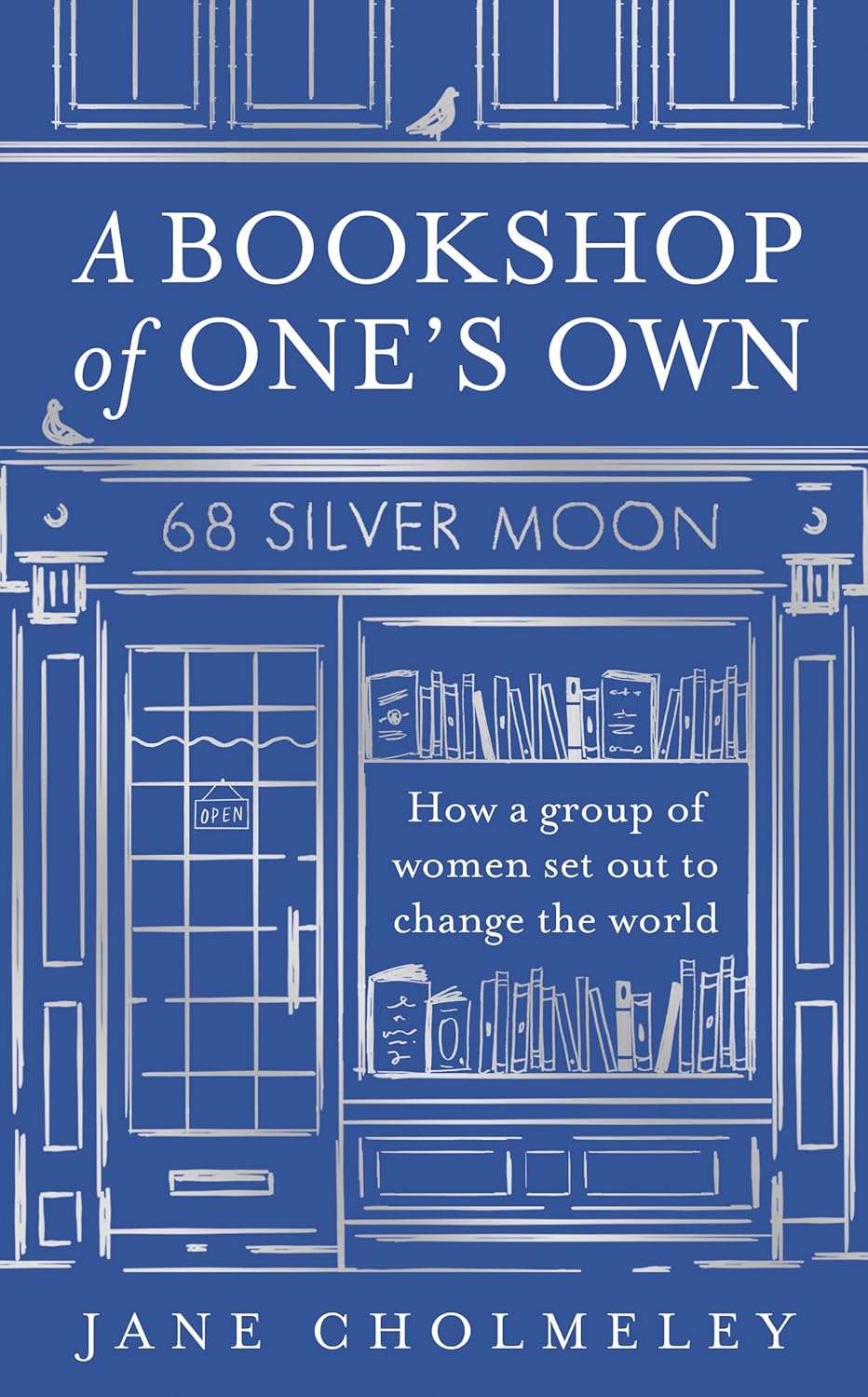Review of A Bookshop of One’s Own: How a group of women set out to change the world by Jane Cholmeley

A Bookshop of One’s Own: How a group of women set out to change the world
Jane Cholmeley
Mudlark, 2024, 384 pages
$21.99
Reviewed by Michaela Hayes
It is easy to forget that accessing lesbian and feminist literature was once incredibly difficult. Or rather, for me, it is hard to even imagine. I work for a lesbian literary magazine and have completed both a BA and an MSc in literature. I have lived in a world where reading feminist literature isn’t only easy, it’s encouraged. Reading A Bookshop of One’s Own by Jane Cholmeley, I’m reminded that I’ve been incredibly lucky. This book serves as a timely reminder as well, as book bans are surging in both the US, where I’m from, and the UK, where this book is set and where I currently live.
A Bookshop of One’s Own is Jane Cholmeley’s account of Silver Moon, a feminist lesbian bookshop she opened with her partner-turned-best-friend (very lesbian indeed), Sue Butterworth. The shop was on Charing Cross Road, a street in central London renowned for its specialist bookshops. Silver Moon was opened with substantial help from the Greater London Council (GLC), a government-funded program that ran from 1965 to 1986. According to Esther Webber of BBC News, the GLC was created in response to a disjointed and disorderly London still reeling from World War II, with the aim to promote prosperity among the population. To the GLC, this included cultural pursuits, which led it to subsidize rents and provide loans for institutions deemed culturally important, such as Silver Moon Women’s Bookshop: “As well as giving greater support to the arts in general, the GLC wanted to give a voice to the unheard, the disregarded, the disadvantaged” (43).
A Bookshop is a sweeping account of Silver Moon from start to finish—Cholmeley covers the inception of the idea for the bookshop, the trials and tribulations of operating a feminist business in a capitalist world, the changing tides of politics in Britain during Thatcher’s reign, and the forces that ultimately forced the bookshop to close. The strength of the book lies in the details. Cholmeley is a self-professed ‘numbers guy’ and, as a result, leads the reader through the nitty gritty of feminist bookselling that might otherwise remain unknown to us. It is one thing to know in theory that Thatcher had a disastrous effect on feminist and justice-oriented endeavors and another entirely to understand the mechanics. Cholmeley makes clear through facts and figures that the shuttering of Silver Moon was due to a confluence of factors, nearly all of them tracing back to the rapid privatization of public services.
Cholmeley’s humor threads through the book and binds it together. Though she recognizes that Silver Moon became an invaluable and world-renowned feminist institution, she makes clear that she and her team weren’t thinking about glory or legacy:
“. . . we were much more concerned with survival and laughter. I want this to be our record. A record of the joy—of seeing favorite authors prosper; the awe—of welcoming a heroine superstar author to the shop; the fun—of thinking up subversive merchandise or rewarding ourselves with outrageously boozy Christmas dinners; the anger—of having to clean the carpet from a wanker’s sperm; the political defiance—as we rainbowed-up the Charing Cross Road and fought Section 28; the daily grind—of learning to run a business; the tensions—around politics, personalities and priorities” (3).
With this book, Cholmeley succeeds in her mission; indeed, A Bookshop of One’s Own makes plain all of the above while also shedding light on the rapidly changing political landscape of Britain under Thatcher. Silver Moon closed in 2001, but its legacy lives on in ways that we will never know the extent of. However, this book helps to fill in some of the blanks. I highly recommend it to anyone interested in the history of feminist bookselling, especially younger people such as myself who have a hard time imagining the world pre-internet when access to information was far more restricted. This book is especially relevant today as, unfortunately, right-wing governments intent on erasing queer and racial history surge all over the world.
Michaela Hayes is a writer, researcher, and, above all, a reader. She’s currently living in Edinburgh, where she just finished a master’s in Literature & Modernity, in which she focused on posthuman feminism. She’s currently gearing up for another winter in Scotland, so if you have gay book recommendations, send them to Michaelahayes225 at gmail dot com.
"Empowerment comes from ideas."
― Charlene Carruthers
"Your silence will not protect you."
— Tourmaline
"Gender is the poetry each of us makes out of the language we are taught."
— Leila Raven


